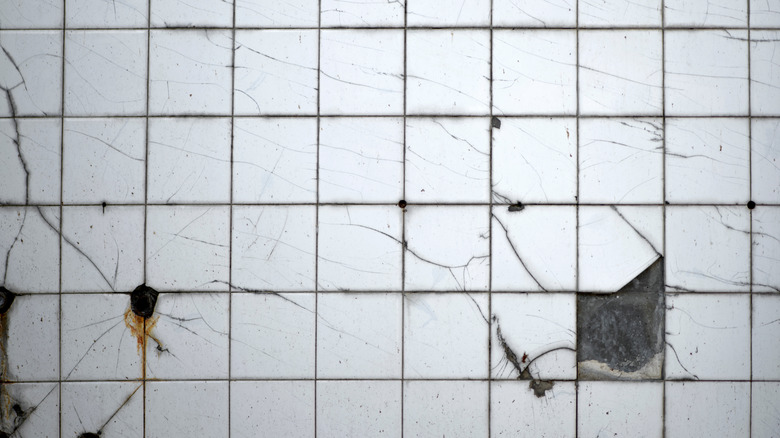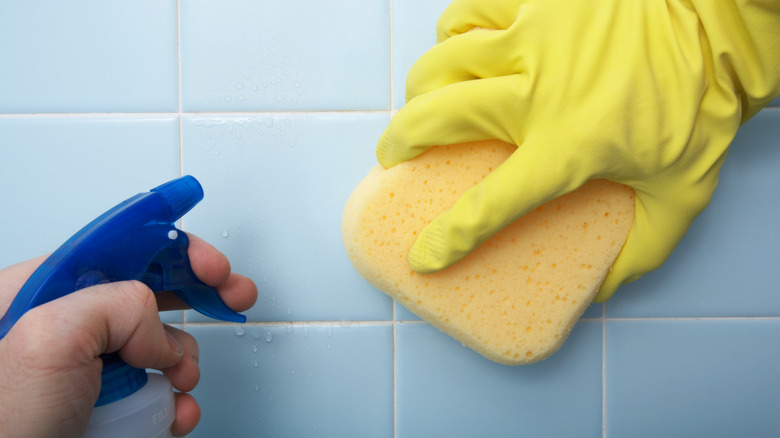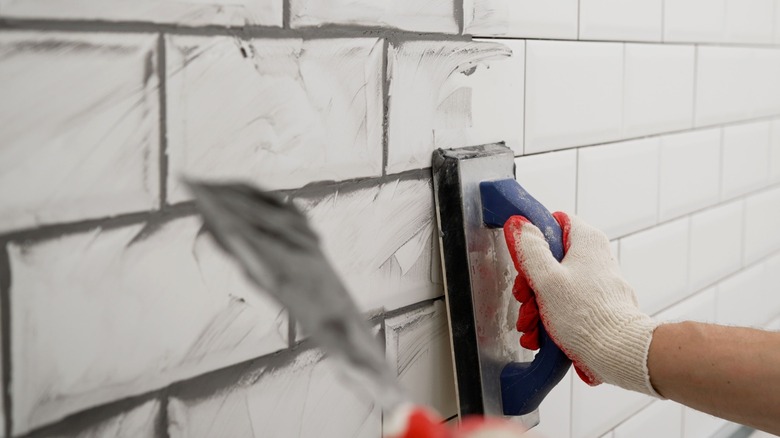How Long Tiled Shower Floors And Walls Typically Last Before Needing Replaced
We may receive a commission on purchases made from links.
When it's time to give your shower a makeover, you may be interested in how to DIY tile a shower. Tile has a number of advantages when used for this purpose, including resisting water damage and being easier to clean than some other materials common in a shower installation, like fiberglass, which can be prone to staining.
One of the best reasons to select ceramic or porcelain tile for the walls and floors of your shower is because this material stands up to constant use and delivers outstanding longevity for you. It's possible, with the proper maintenance and care, to have a tile installation in the shower that lasts at least 40 years and potentially as long as 80 years. This compares to acrylic or fiberglass showers that likely will need replacement every 10 or 15 years.
Architects have found ceramic tiles as old as 2,000 years, so your tile shower walls and floors should last as long as you need. They're a good investment whether you need them to last until you are ready to sell the house or until you want to redo the space again because you are tired of the design. It can help to choose timeless white, grey, or other neutral tile colors to avoid having a bathroom with outdated accent tiles when trends change.
Ways you can extend the lifespan of your tiled shower installation
Regular cleaning lengthens the lifespan of the tiles in your shower, whether you do it yourself or hire a professional service. For a DIY job, any cleaner you select should include the ability to remove soap residue and any deposits from hard water, such as Lime-A-Way, which is available on Amazon for about $6. Use a sponge or mop to apply the cleaner and scrub the tiles, according to the cleanser's instructions.
If you don't want to purchase a cleanser, vinegar can be a versatile cleaning tool. You can clean the ceramic tiles by mixing equal parts warm water and vinegar in a spray bottle and applying the solution to the walls and floor of the shower. For more stubborn stains, mix a cup of warm water with two cups of vinegar and a tablespoon of dishwashing soap.
Another way to ensure long-lasting shower tile is to select high-quality ceramic tiles when you install them. Stick with higher-grade products for the shower floors to ensure they will survive in this high-stress area, compared to what you need to install on the walls. Pay attention to the PEI wear rating, which should be III, IV, or higher in Roman numerals. Properly installing the tiles helps with longevity, too, meaning you may want to hire a professional to do the job for you.
How important is the grout in the longevity of your shower tile installation?
Your ceramic tiles in the shower will last longer when you install high-quality grout because it fills the joints to keep water from seeping behind the installation, while also holding the tiles together and improving the stability of the entire layout. It prevents the tiles from shifting over time, where they could rub against each other and lead to tile damage like cracking and chipping.
If you are doing the shower installation job yourself, make sure to select a type of grout that the manufacturer of the ceramic tiles recommends. The two products need to be compatible. Be certain to mix the grout to match the recommendations of its manufacturer, so you don't end up with too much or too little water, which would cause issues with longevity.
You likely will need to redo the installation of the grout in your shower well before it's time to replace the ceramic tiles. As grout ages, it's not able to do its job as well of protecting and securing the ceramic tiles in the shower. Typically, you can expect the installation of the grout to last between 8 and 10 years. If you notice issues, such as flaking, cracks, and holes before that, this indicates that the grout is deteriorating to the point that you need to replace it.


